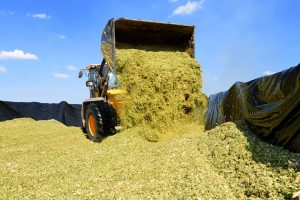THE MINISTER for Environment, Energy and Rural Affairs, Lesley Griffiths, last week confirmed what the Welsh Government calls ‘Sustainable Farming’ will remain at the heart of future Welsh agriculture support.
The Welsh Government published its response to last year’s Sustainable Farming and our Land consultation on Wednesday, July 8.
The consultation proposed future funding should support and reward farmers who operate sustainable farming systems and protect and enhance the environment.
Responses to the consultation broadly backed the Welsh Government’s aims but with important caveats to the support expressed.
A significant proportion of the responses came from outside Wales. Those responses came particularly from individuals pursuing an anti-farming agenda, or as part of coordinated campaigns from groups lobbying the Welsh Government.
Over half the respondents (1,900 out of 3,300) came from members of the RSPB.
PLANS LACK SUBSTANCE
Responses from individual farmers cited within the Consultation Report reflect widely-held concerns that the Welsh Government’s plans are thin on detail. Those responses also highlight worries that Welsh farmers will be driven into an uncompetitive position due to new and burdensome regulation.
Despite those concerns, Lesley Griffiths confirmed a future agricultural support scheme will continue to be developed around the Sustainable Land Management framework.
During an update to the Senedd, the Minister also set out the next stages in the development of future support, including:
• Undertaking a range of economic analysis to understand the impact of moving from an entitlement based income support scheme to a voluntary scheme which rewards the production of outcomes. This will be published next summer and no decision on a future scheme will be made without consideration of this analysis;
• A transition period to enable farmers to adjust their existing business model to accommodate any changes required by the proposed scheme; and
• Publishing a White Paper before the end of this Senedd term, which will pave the way for the introduction of an Agriculture (Wales) Bill during the sixth Senedd term.
The Minister said: “Our proposals in Sustainable Farming and our Land provide an important income stream for farmers, recognising the important work they do in delivering environmental outcomes and rewarding them for it.
“We are also looking to reinforce the long term competitiveness of the sector through enhanced business advice and support, helping support farmers in the new economic realities following the UK’s departure from the EU.”
WG PRESSES AHEAD REGARDLESS
Lesley Griffiths continued: “Following consideration of the responses to the consultation, we will continue to develop a future system of agricultural support around the Sustainable Land Management approach.
“This approach will allow us to respond to the climate emergency, will help to reverse biodiversity decline, will ensure high standards of animal health and welfare, and protect our natural resources. Food produced using this approach will be sustainable, ensuring a food supply for future generations.
“Over the coming months, we will continue to engage with the sector and industry representatives on the ongoing development of these proposals for the White Paper, paving the way for an Agriculture Bill. This Bill will set out a support framework which can accommodate the development of agriculture and forestry within Wales for the next fifteen to twenty years. The Bill will enable farmers to be financially supported and ensure a coherent and fair system of regulation can be applied to the agricultural sector.”
A FURTHER CONSULTATION
To ensure farmers are supported following the UK exit from the EU, the Minister also confirmed plans to launch a FURTHER consultation this summer seeking views on the retention and simplification of rules around agricultural support for farmers and the rural economy. This support would bridge the gap between the current EU funding and any new scheme based on sustainable land management.
The Minister added: “It has been a difficult few months globally and Welsh farmers have not been exempt from recent circumstances. I am proud of the resilience they have shown in responding to those difficulties.
“Farmers, foresters and other land managers play a vital part in the economic, environmental, and social well-being of Wales. We will continue to support them to adapt to economic changes as well as the impact of climate change.”
GOVERNMENT FAILING RURAL COMMUNITIES
The Welsh Conservatives’ Shadow Minister for Rural Affairs, Andrew RT Davies responded: “It’s all very well for Lesley Griffiths to stand up and make promises of support to our vitally important farming sector. However, those promises will only materialise if they are driven by a minister who has a finger on the pulse during this COVID-19 pandemic. That has not been the case.
“Time and time again, the Welsh Government has failed our rural communities. Just last week, the Wales Audit Office published a damning report into this government’s handling of the Rural Development Grants Scheme.
“What rural communities desperately need the Welsh Government to do is set out clearly what any support it offers aims to achieve. That should include incentives for food security and for unleashing Wales’ environmental and food-producing revolution.”
CUT BUREAUCRACY SAYS FUW
FUW President Glyn Roberts said: “The proposal to adopt the United Nations’ Sustainable Land Management (SLM) principle as the objective and framework for a future policy fails to encompass wider Welsh goals and objectives, including those defined in the Wellbeing of Future Generations Act 2015, and therefore falls short of being a holistic policy.
“While we welcome some of the conclusions reached in the Welsh Government’s response to the consultation, we remain convinced that families, jobs and communities should be at the heart of planning a new policy – alongside sustainable food production and the SLM principles.”
Mr Roberts said that a scheme which focuses only on the provision of Public Goods and environmental outcomes would fail to take proper account of prosperity, jobs, culture and other issues inherent to the Wellbeing Goals and other Welsh objectives, risking severe adverse impacts.
“We, therefore, welcome the Welsh Government’s commitment to undertake a range of economic analyses to understand the impact of moving from an entitlement based income support scheme to a voluntary scheme which rewards the production of outcomes.
“This work needs to be thorough and look at impacts for individual businesses, sectors and regions of Wales as well as the implications for the tens of thousands of businesses which rely on agriculture and the scheme delivery costs.
“Above all else, it is concerning that the recent food shortages, delays and difficulties in administering our current environmental scheme – Glastir – and hundreds of consultation responses highlighting concerns about the overall direction of travel has not given the Welsh Government more pause for thought.”
STANDARDS FEAR
TFA Cymru said: “Any new regulatory framework must take into consideration standards which are being used in other parts of the UK and internationally; particularly where goods produced under those differing standards find their way in front of Welsh consumers. That not only undermines domestic production, but it also allows poorer standards to continue in other jurisdictions.
“If it is felt important to introduce a new level of regulation in respect of agricultural production which is not applied elsewhere, the Welsh farming community would legitimately expect protection against products imported to Wales produced to standards which would be illegal at home.”
WG SHOULD ‘PAUSE & REFLECT’
NFU Cymru President John Davies said: “This announcement provides us with some additional clarity on the direction of travel as regards future support. In light of the continuing Coronavirus disruption, as well as ongoing Brexit uncertainty, I would really have liked to have seen Welsh Government taking the opportunity to pause and reflect on this process rather than pressing ahead with new policy development.
“Despite the representations made by NFU Cymru, today’s statement from Welsh Government makes no provision for some sort of stability payment, and that is very disappointing, especially in light of the recent market volatility.
“I was pleased to see the Minister acknowledge the role of agriculture and the food supply chain in keeping the country fed during the Coronavirus outbreak. I am, however, keen to ensure we do not forget the lessons of the pandemic: in particular, how it underscored the value of having a secure domestic primary production base – something which we very much consider ‘a public good’. I also welcome what the Minister said about the simplification of some of the rules around CAP legacy schemes. While that is positive news, it must deliver genuine simplification of complex rules if it is to benefit the sector.”
WG presses ahead with agri-policy change














